Dadaocheng, known as Twatutia in Hokkien Taiwanese, stands out as one of Taipei’s most captivating neighborhoods and a prime destination for exploration on foot. While the southern Old City of Wanhua attracts many tourists, Dadaocheng and its central artery, Dihua Street, offer a deeper dive into history, cuisine, and culture that is indispensable for enthusiasts.
Once second only to Tainan in size within Taiwan, Dadaocheng’s strategic location on the Tamsui River made it the primary port of entry for goods into Taipei. Dihua Street, now celebrated as Taipei’s oldest street, flourished as a trading hub for tea, traditional medicine, herbs, fabrics, and a vast array of dried goods. Even today, it remains a treasure trove for authentic Taiwanese souvenirs and is recognized as one of the best places in Taipei to purchase tea.
Beyond commerce, the area is rich in cultural experiences, boasting some of the most intriguing temples, delectable traditional street food, and engaging cooking classes in Taipei.
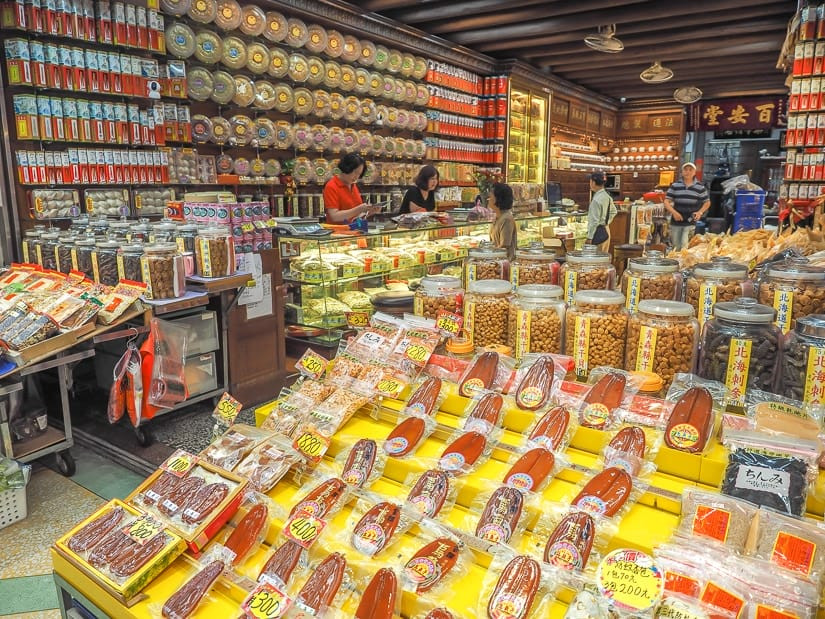 A traditional dried goods shop brimming with various products on Dihua Street, Dadaocheng. Exploring these shops is a quintessential Dihua Street experience.
A traditional dried goods shop brimming with various products on Dihua Street, Dadaocheng. Exploring these shops is a quintessential Dihua Street experience.
The architectural landscape of Dihua Street and its surroundings is a living museum, showcasing a spectrum of styles that reflect its layered history. Here, you can find ancestral homes from the Qing Dynasty built in the Fujian style, juxtaposed with the ornate Baroque revival and sleek modernist designs favored during the Japanese colonial era.
What sets Dihua Street apart is the vibrant continuity of its heritage. Many businesses, some over a century old, still thrive, while beautifully restored historical buildings now house trendy modern cafes, artisan shops, and chic boutiques. Adding to its allure are unique museums, age-old temples, and classic eateries, making Dadaocheng and Dihua Street an essential Taipei experience.
For those keen to explore more of Taipei’s diverse neighborhoods, consider visiting Ximending and Beitou Hot Spring, two other personal favorites, or Jiufen, another locale known for its Japanese-era architecture and tea houses. For extended explorations, consider these day trips from Taipei.
Unveiling Dihua Street Through a Guided Tour
Exploring Dihua Street can be profoundly enriched by opting for a guided experience. Companies like MyProGuide offer customized tours that delve into the rich tapestry of history and sights that Dihua Street has to offer. For those wishing to immerse themselves deeply and gather detailed insights into each landmark from a local expert, their Dihua Street Walking Tour is highly recommended.
A preliminary exploration, such as reading this guide, can significantly enhance your guided tour, allowing you to pinpoint specific interests and maximize your time, as Dihua Street and Dadaocheng are replete with attractions and stories that are impossible to fully absorb in a single visit.
MyProGuide also extends its tour offerings to other significant areas, including walking tours of Longshan Temple and Ximending, providing a comprehensive Taipei cultural experience.
The Historical Roots of Dadaocheng and Dihua Street
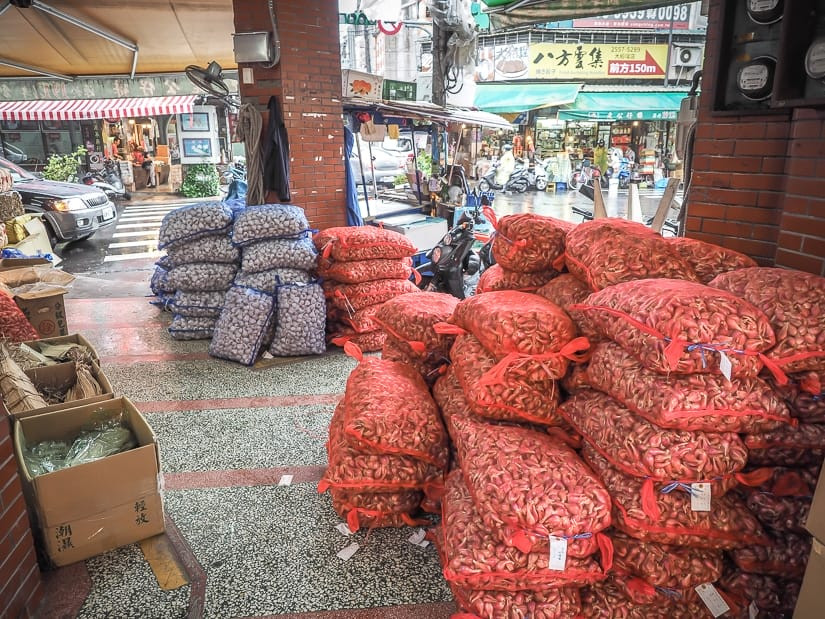 An array of goods, including shallots and garlic, displayed on Dihua Street (Dihua Jie), Dadaocheng, showcasing its ongoing role as a trade center.
An array of goods, including shallots and garlic, displayed on Dihua Street (Dihua Jie), Dadaocheng, showcasing its ongoing role as a trade center.
The narrative of Dihua Street is intricately woven with the history of Dadaocheng. Originally an area dedicated to rice cultivation during the Qing Dynasty, Dadaocheng, meaning “large square for drying rice husks and grains,” began to transform in the mid-19th century with the advent of tea traders. The first tea shop marked its presence in 1851, laying the foundation for Dadaocheng’s future as a commercial hub (for tea aficionados, explore the best traditional tea houses in Taipei).
Located north of the old city of Bangka (艋舺, also known as Monga, now Wanhua District), Dadaocheng’s prominence grew as Taipei evolved. British involvement in the burgeoning tea trade further catalyzed development, and an influx of settlers followed conflicts in Bangka.
The Treaty of Tianjin opened Tamsui port to foreign trade, positioning Taipei as a key trading locale. However, Bangka’s shallow shores hindered docking, shifting the focus to Dadaocheng, which by the 1880s, became the city’s primary port. This prosperity was further cemented with the construction of Taipei’s first train station in Dadaocheng in 1891, shortly before Taipei officially became Taiwan’s capital in 1894.
During the Japanese colonial era (1895-1945), Taipei, or Taihoku as it was then known, remained the capital, with Dadaocheng (Daitōtei) functioning as a vital extension of the city. It housed a significant foreign population and boasted 30,000 to 40,000 residents. Post-KMT arrival, the area was renamed Dadaocheng.
Dihua Street has consistently been the central artery of Dadaocheng, running parallel to the Tamsui River from south to north. It is acclaimed as Taipei’s oldest street, with segments tracing back to the Dutch Formosa period (1624–1661), though its major development occurred from the 1850s onwards.
Initially known as Central Street (中街), with its southern and northern parts named South Street (南街) and North Street (北街), respectively, the KMT later renamed it Dihua Jie, after the original name of Ürümqi in Xinjiang, China.
For those interested in Taiwan’s oldest streets, Anping Old Street in Tainan offers another historical exploration.
Navigating Dadaocheng and Accessing Dihua Street
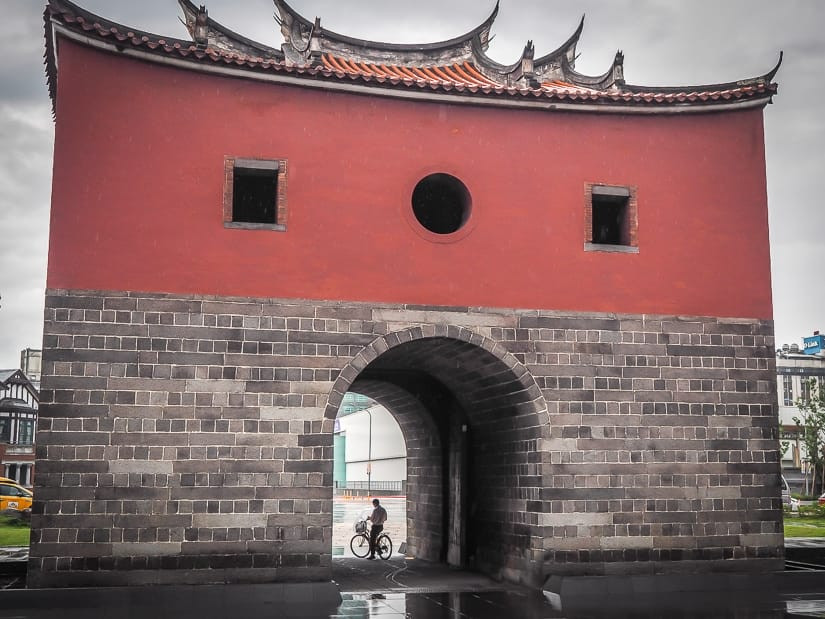 Beimen (North Gate), Taipei, serving as the southern gateway to Dadaocheng.
Beimen (North Gate), Taipei, serving as the southern gateway to Dadaocheng.
Dadaocheng is nestled within Datong District, without official district boundaries, but is generally considered to be bordered by the Tamsui River to the west, Minquan W. Road and the orange MRT lines to the north (Daqiaotou MRT station provides northern access), Chongqing North Road Sect. 2 to the east, and Beimen (North Gate) to the south.
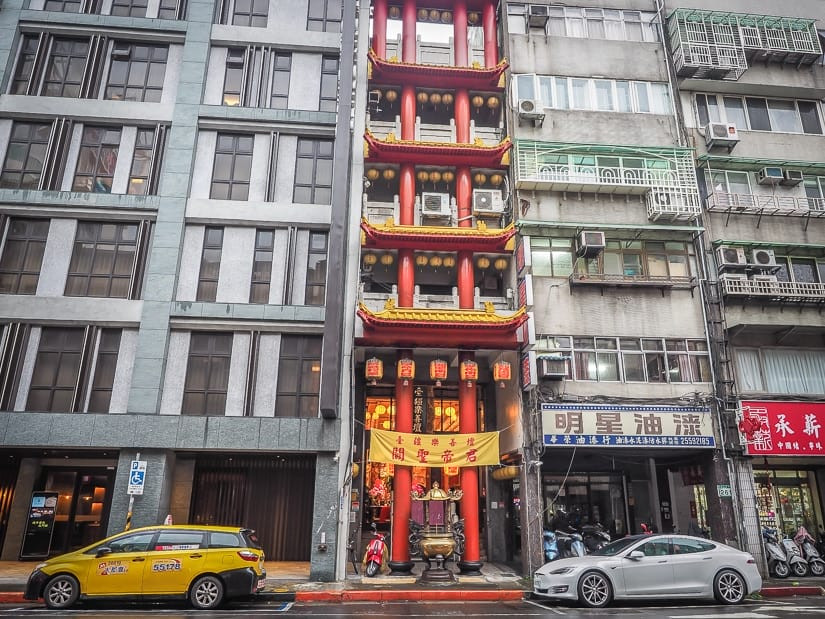 A narrow temple nestled between buildings in Dadaocheng, Taipei, showcasing the unique urban temple landscape.
A narrow temple nestled between buildings in Dadaocheng, Taipei, showcasing the unique urban temple landscape.
The core of Dadaocheng centers around Dadaocheng Wharf. Dihua Street Section 1 begins where Nanjing W. Rd. subtly curves south towards the river. Mikkeller Taipei, a craft beer bar, marks the southern end of Dihua Street, a convenient starting point for a walking tour. It is accessible within a 10-minute walk from Beimen MRT station (green line) or 15 minutes from Zhongshan MRT station (green or red line).
Dihua Street Section 1 stretches north to Minquan W. Rd., inviting a complete walk-through. Beyond this point, it transitions into Dihua Street Section 2, an area beyond the scope of this guide.
Yansan Night Market is located further north, while Ningxia Night Market, a popular Taipei night market, is just east of Dadaocheng. Jiancheng Circle, once a bustling market from the Japanese era, now a park, lies southeast of Dihua Street. Nearby, Ri Xing Foundry, Taiwan’s last traditional type foundry, is worth a visit, noting its limited hours.
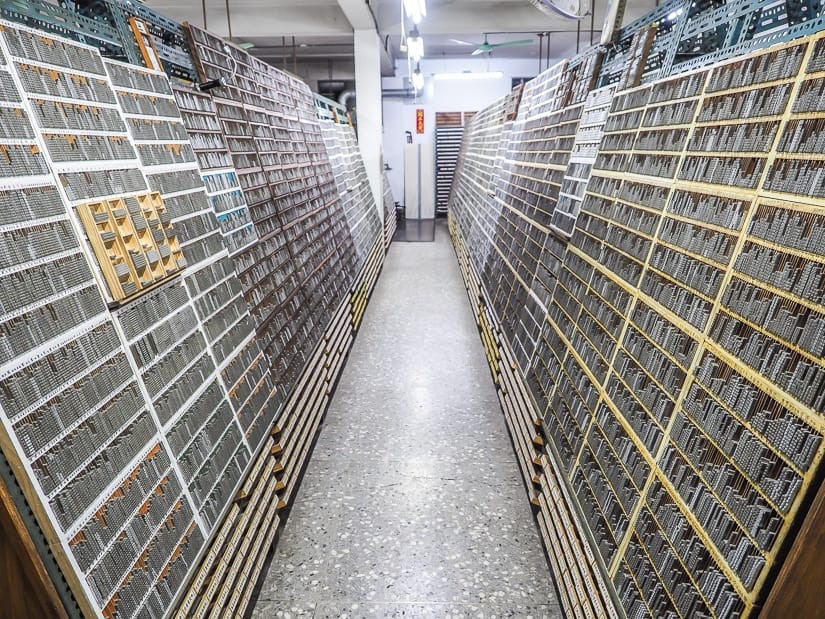 Ri Xing Foundry in Dadaocheng, the last traditional character type foundry in Taipei, preserving a piece of printing history.
Ri Xing Foundry in Dadaocheng, the last traditional character type foundry in Taipei, preserving a piece of printing history.
Accommodation Options in Dadaocheng and near Dihua Street
For visitors planning a Taipei itinerary and seeking where to stay in Taipei, Dadaocheng, especially hotels near Dihua Street, provides a centrally located and atmospheric base. These accommodations offer easy access to Dihua Street, Ningxia Night Market, Beimen, and Taipei Main Station, often housed in beautifully restored historic buildings.
Budget-Friendly Stays
-
We Come Hostel: Situated ideally between Taipei Main Station, Beimen, and Ningxia Night Market, and a stone’s throw from Dihua Street. Offers highly-rated dorms and private rooms.
- Agoda / Booking / TripAdvisor
-
Jian Shan Hotel: Offers charming vintage-style rooms with a historical ambiance, cement and red brick interiors, at budget-friendly prices for double rooms. Located on Guisui street, near Dihua Street.
- Agoda / Booking / TripAdvisor
Mid-Range Hotels
-
OrigInn Space: Nestled in a historic Lin family building at the entrance of Dihua Street, providing a nostalgic atmosphere. Each room is uniquely decorated with vintage items.
- Agoda / Booking / TripAdvisor
-
The Door Inn: Features a minimalist white and gray design, with some rooms offering balconies overlooking Dadaocheng. Located at the northern end of Dihua Street.
- Agoda / Booking / TripAdvisor
Luxury Option
- Palais de Chine Hotel: One of Taipei’s premier hotels, home to a Michelin 3-star restaurant, and conveniently located within walking distance of Dihua Street.
- Agoda / Booking / TripAdvisor
Dihua Street During Lunar New Year Festivities
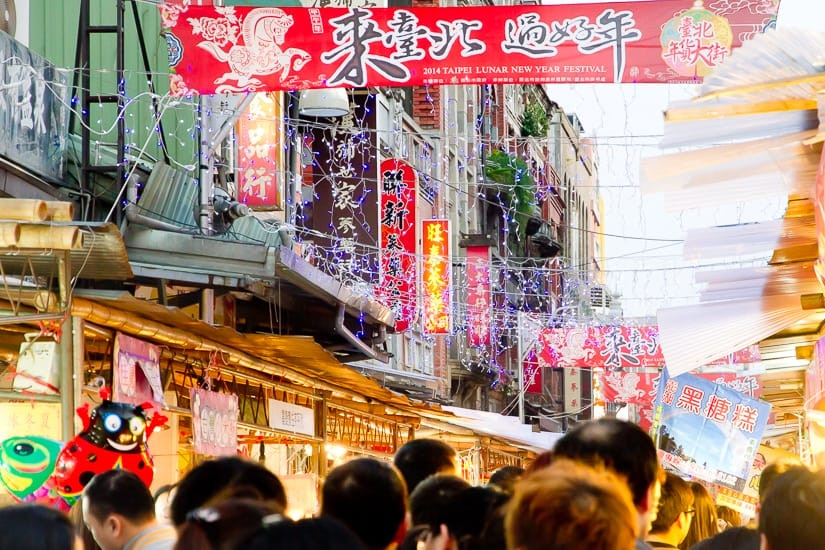 Dihua Street comes alive with vibrant energy during Chinese New Year, bustling with shoppers and festive stalls.
Dihua Street comes alive with vibrant energy during Chinese New Year, bustling with shoppers and festive stalls.
To experience Dihua Street at its most dynamic, visit during the weeks leading up to Lunar New Year, typically in late January or February. During this period, it becomes a focal point for Taipei residents preparing for the holiday, seeking goods like dried fruits, mullet roe, and festive decorations.
The street transforms into a bustling marketplace, particularly crowded on weekends, with shops extending their displays and offering samples. Despite the winter season in Taiwan, the crowds and warm treats create a lively and cozy atmosphere.
A Self-Guided Walking Tour of Dihua Street: Key Attractions
The following walking tour highlights the best attractions along Dihua Street, starting from the southern end and progressing northwards. This itinerary blends personal experiences from guided tours and independent explorations, suggesting a pace that allows for thorough enjoyment without attempting to cover everything in a single day.
1. Mikkeller Craft Beer Bar
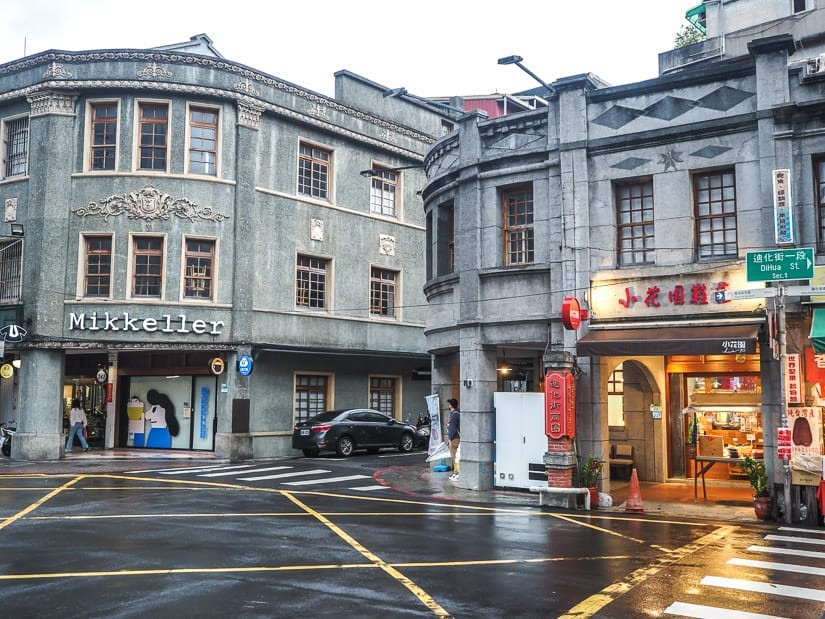 An intersection scene after rain, featuring heritage buildings, one of which houses Mikkeller, indicated by its signage.
An intersection scene after rain, featuring heritage buildings, one of which houses Mikkeller, indicated by its signage.
Begin your Dihua Street exploration at Mikkeller Bar Taipei, located right at the street’s entrance. Recognized as one of Taipei’s best craft beer destinations, this branch of the globally renowned Mikkeller brand boasts an extensive beer selection and a welcoming second-floor beer hall.
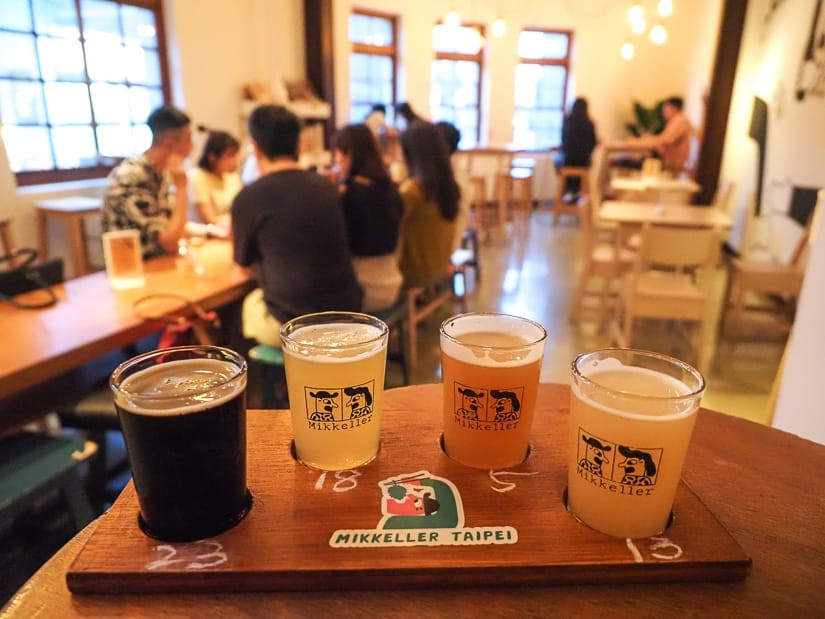 A wooden beer flight holding four small glasses of craft beer, set on a table with patrons in the background, enjoying the ambiance of Mikkeller.
A wooden beer flight holding four small glasses of craft beer, set on a table with patrons in the background, enjoying the ambiance of Mikkeller.
2. Dadaocheng Tourist Information Center
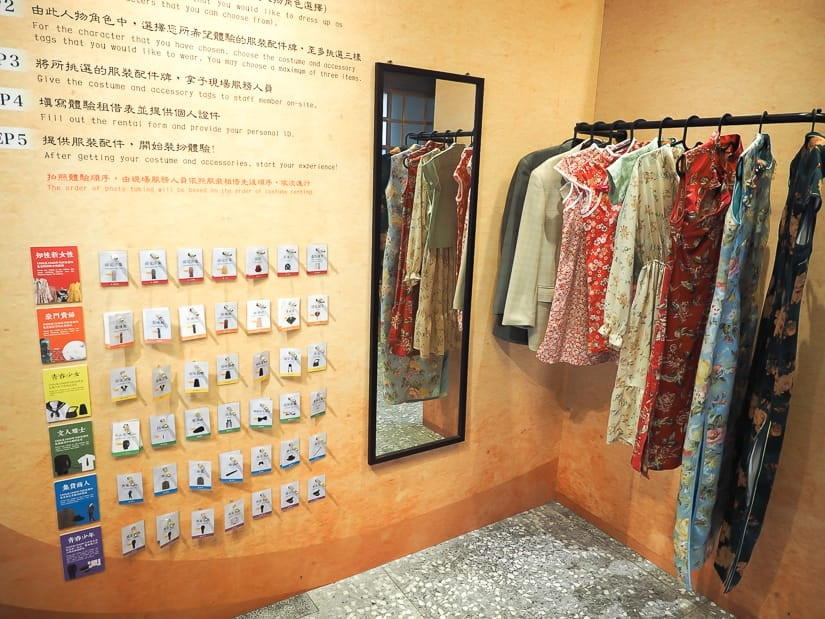 Traditional clothing rentals at Dadaocheng Visitor Center, offering a cultural photo opportunity.
Traditional clothing rentals at Dadaocheng Visitor Center, offering a cultural photo opportunity.
For maps and local insights, the Dadaocheng Visitor Center is an excellent starting point. Situated opposite Yongle Market, this tourism bureau-operated center provides valuable resources, including English maps. Visitors can also rent traditional qipao dresses for free to enhance their Dihua Street photos. Advance online booking is recommended due to popularity.
3. A.S. Watson & Co. Building
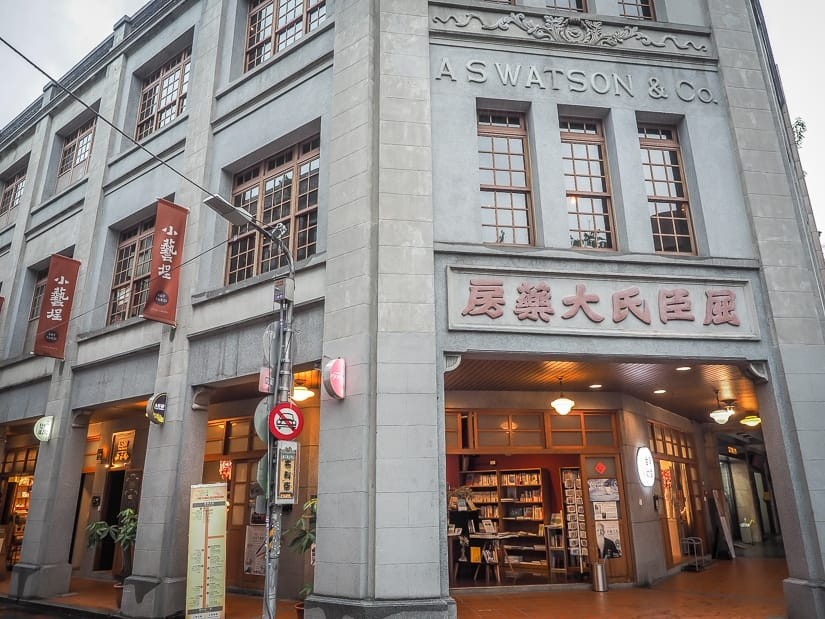 The historic ASW Building at the corner of Dihua Street and Lane 32, Dadaocheng, showcasing its colonial-era architecture.
The historic ASW Building at the corner of Dihua Street and Lane 32, Dadaocheng, showcasing its colonial-era architecture.
The 100+ year-old ASW Building, once home to Taiwan’s first Western pharmacy, now houses a collection of craft and souvenir shops, a bookstore, a cafe, and a bar. Small Arts Courtyard, managed by ArtYard, is among these, dedicated to revitalizing historic buildings in the Dihua Street area.
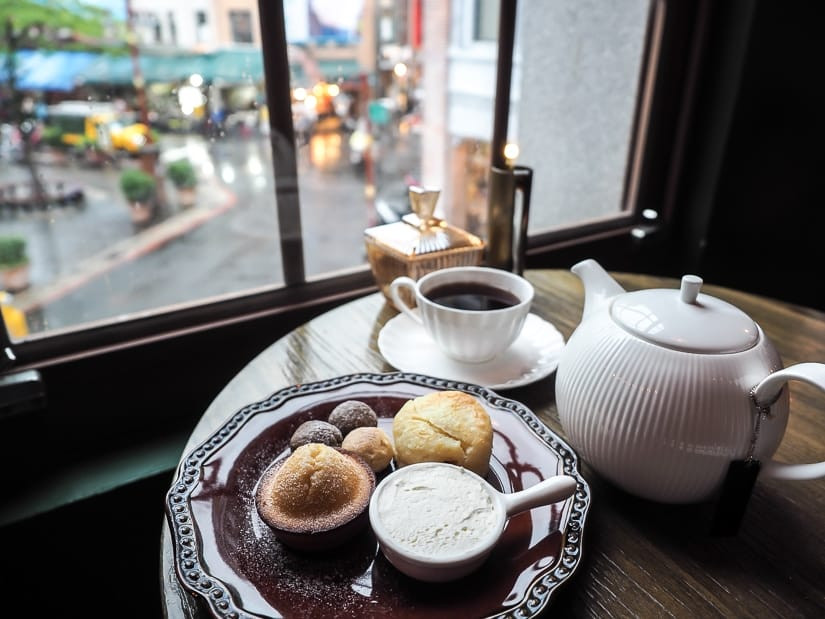 Breakfast scene at ASW Tea House on Dihua Street, featuring British tea and scones in a heritage setting.
Breakfast scene at ASW Tea House on Dihua Street, featuring British tea and scones in a heritage setting.
ASW Tea House, on the second floor, offers a British-style tea experience with all-day breakfasts and tea sets, accompanied by views of Dihua Street. In the evening, it transforms into Watson’s Bar, offering whiskeys and local craft beers. Antique Bar 1900, on the third floor, is a speakeasy-style cocktail bar, reminiscent of a turn-of-the-century European bar, specializing in absinthes and Irish whiskeys.
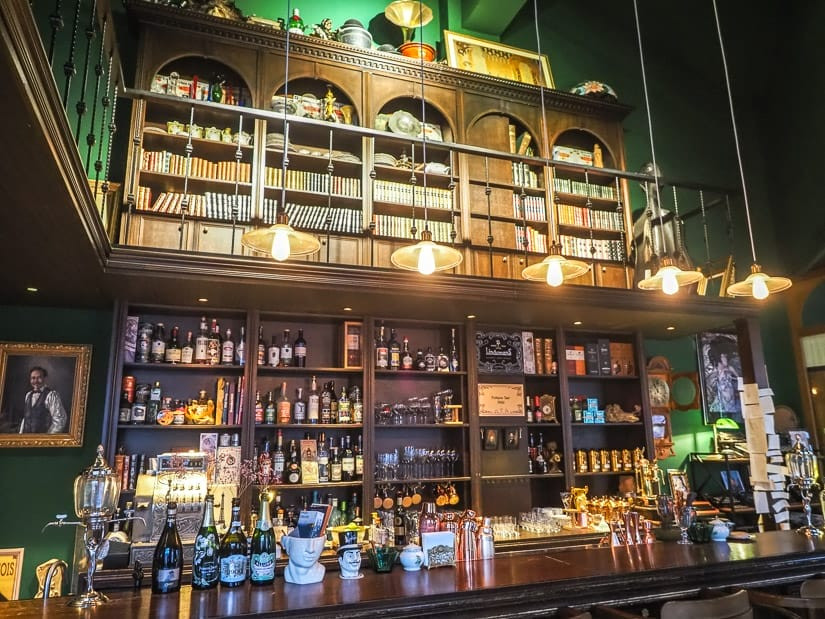 Antique Bar 1900, a European-style bar with a large wooden counter and a bookshelf backdrop, evoking a vintage atmosphere.
Antique Bar 1900, a European-style bar with a large wooden counter and a bookshelf backdrop, evoking a vintage atmosphere.
4. Yongle Market
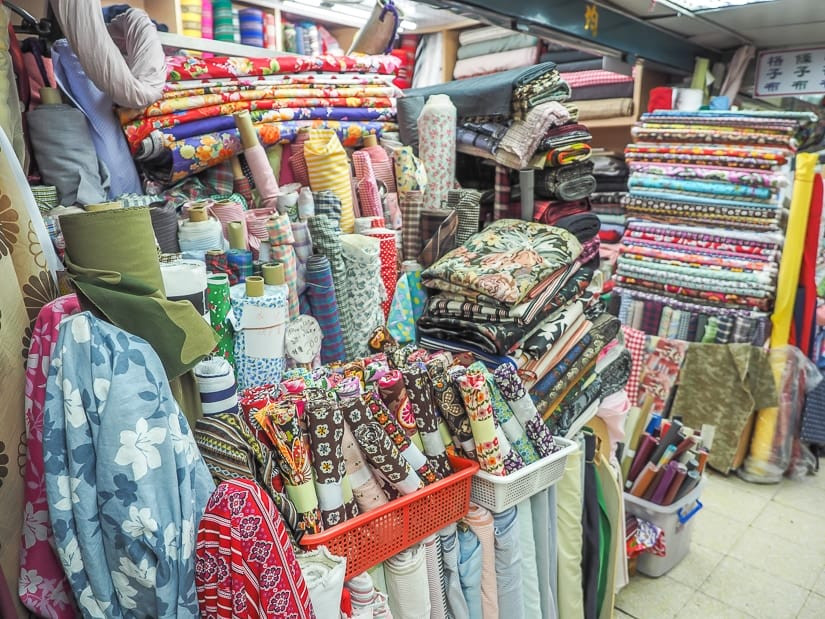 Yongle Fabric Market in Dadaocheng, Taipei, renowned as Taiwan's largest fabric market.
Yongle Fabric Market in Dadaocheng, Taipei, renowned as Taiwan's largest fabric market.
Yongle Fabric Market, a Dihua Street landmark since the Japanese colonial era, remains Taiwan’s largest fabric market. The first floor includes a wet market and food stalls, famous for you fan (oil rice). The second floor is dedicated to fabrics, and the third floor houses tailoring services. The 8th floor features cultural exhibitions, and Dadaocheng Theater is located on the 9th floor. Note: closed on Mondays.
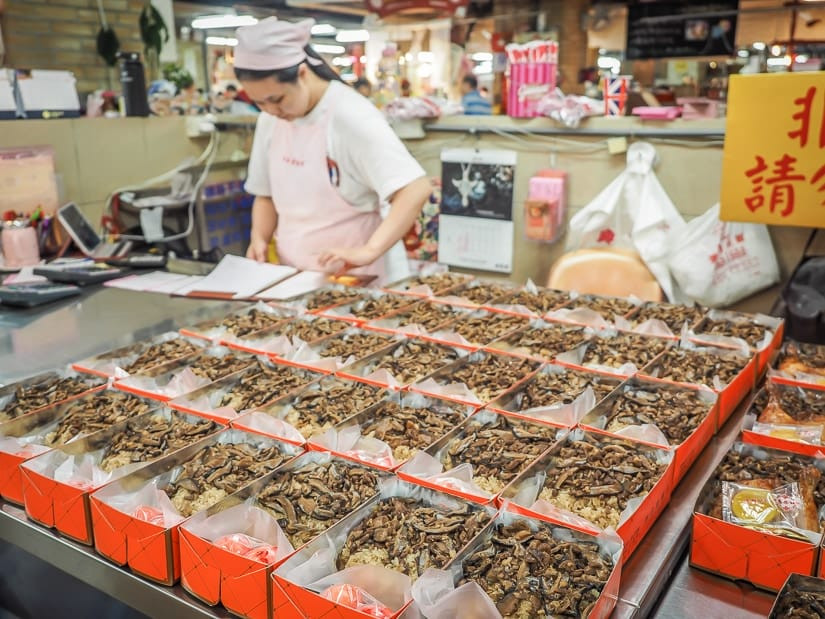 Oil Rice displayed for sale in Yongle Market, Dihua Street, a popular celebratory food.
Oil Rice displayed for sale in Yongle Market, Dihua Street, a popular celebratory food.
Adjacent to Yongle Market on Minle street, find local eateries like Yongle Tainan Fried-Spanish Mackerel Thick Soup and Minle Swordfish Rice Noodle Soup. Yanji Xingren Lu, at the market’s front, specializes in almond and shaved ice desserts. Vegetarian options are also available near the north side of Yongle Market.
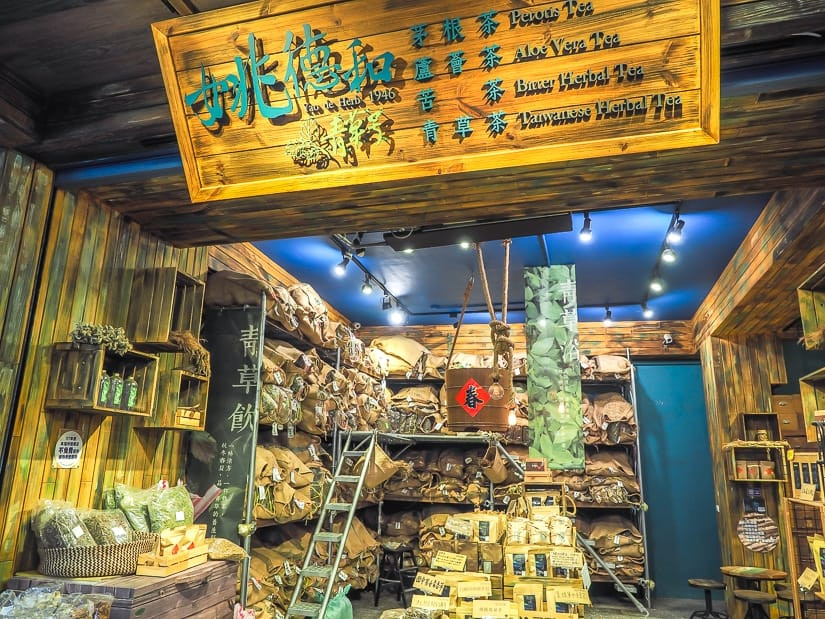 Herbal drinks at Yao De Herb Shop, Dadaocheng, a traditional shop offering refreshing and healthful beverages.
Herbal drinks at Yao De Herb Shop, Dadaocheng, a traditional shop offering refreshing and healthful beverages.
Yao De Herb Shop, behind Yongle Market, is a picturesque Chinese herb shop from 1946, offering refreshing herbal teas like aloe vera tea.
5. Wang Tea (Youji Ming Cha)
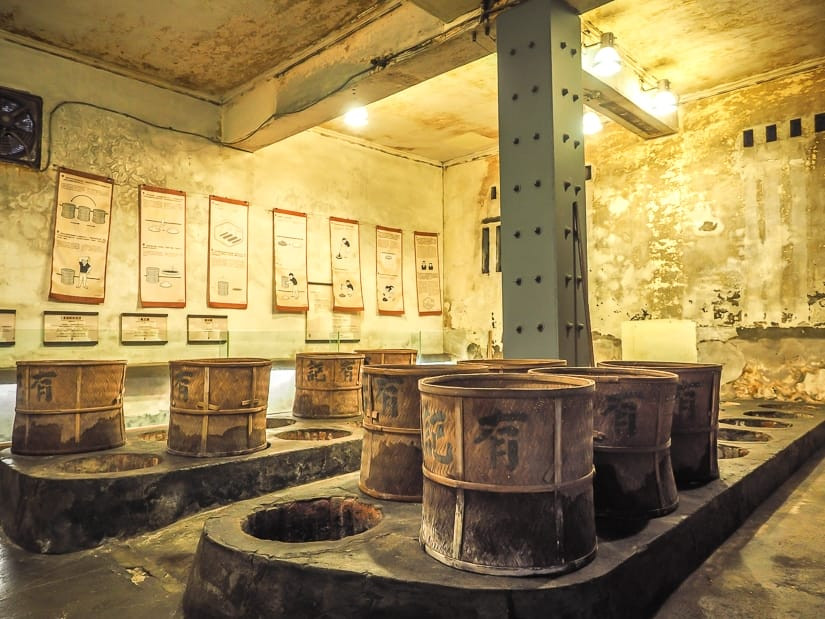 Wang Tea in Dadaocheng, Taipei, showcasing traditional charcoal roasting of tea leaves.
Wang Tea in Dadaocheng, Taipei, showcasing traditional charcoal roasting of tea leaves.
East of Yao De Herb Shop, Wang Tea is a premier destination for tea in Taipei. Established in 1890 and relocated to Taipei in 1949, it’s known for traditional charcoal-roasted teas, especially Baozhong and High Mountain oolongs. It faces Chaoyang Tea Park, surrounded by other tea shops. Note: closed on Sundays.
6. Xiahai City God Temple
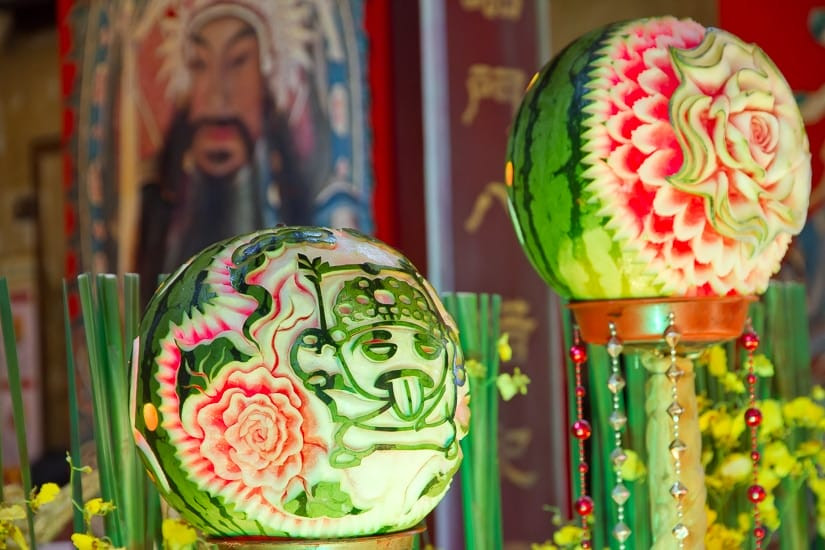 Xiahai City God Temple adorned with carved watermelons for the City God’s birthday, a display of traditional temple offerings.
Xiahai City God Temple adorned with carved watermelons for the City God’s birthday, a display of traditional temple offerings.
Xiahai City God Temple is Dadaocheng’s most famous temple, dedicated to the Xia Hai Cheng Huang God. Despite its small size, it’s significant to locals and known for its association with Yue Lao, the god of love. Visitors often come to pray for romantic success, following a 13-step process to seek Yue Lao’s help. The temple hosts a vibrant birthday parade for the City God, a major Taipei temple festival.
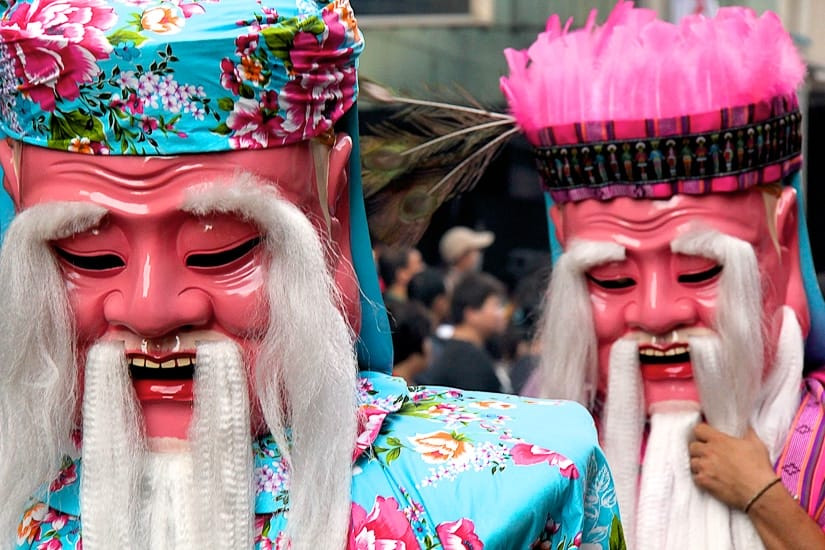 Parade for Xiahai City God’s birthday in Dadaocheng, Taipei, a lively community celebration.
Parade for Xiahai City God’s birthday in Dadaocheng, Taipei, a lively community celebration.
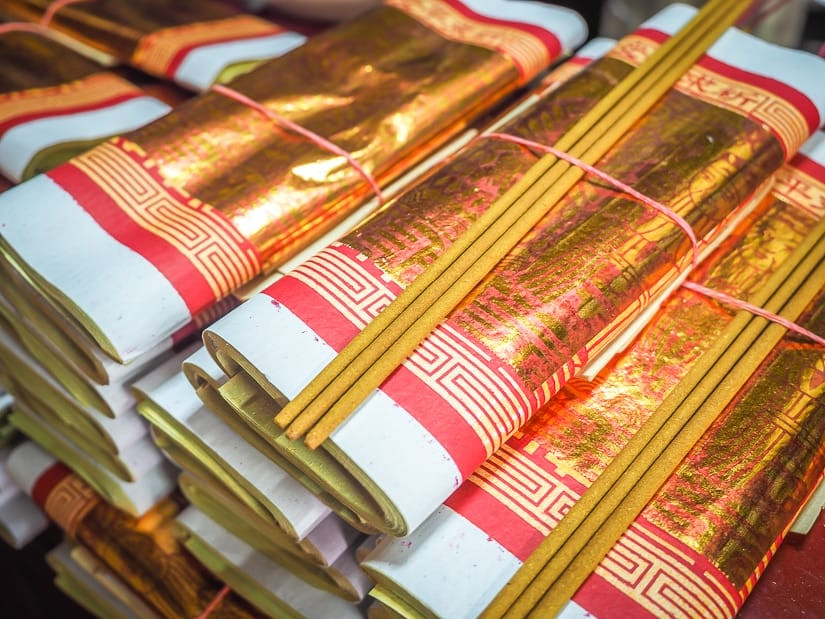 Joss paper and incense used for prayers at Xiahai City God Temple, Taipei, particularly for love and relationships.
Joss paper and incense used for prayers at Xiahai City God Temple, Taipei, particularly for love and relationships.
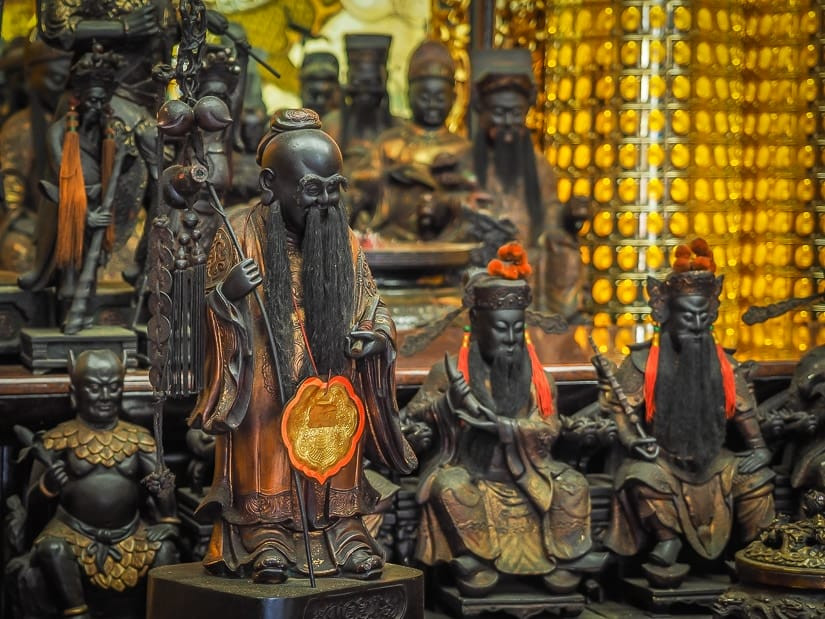 Yue Lao (Yue Xia Lao Ren), the God of Love, featured prominently at Xia Hai City God Temple, revered for matchmaking.
Yue Lao (Yue Xia Lao Ren), the God of Love, featured prominently at Xia Hai City God Temple, revered for matchmaking.
7. Central Dihua Street Area
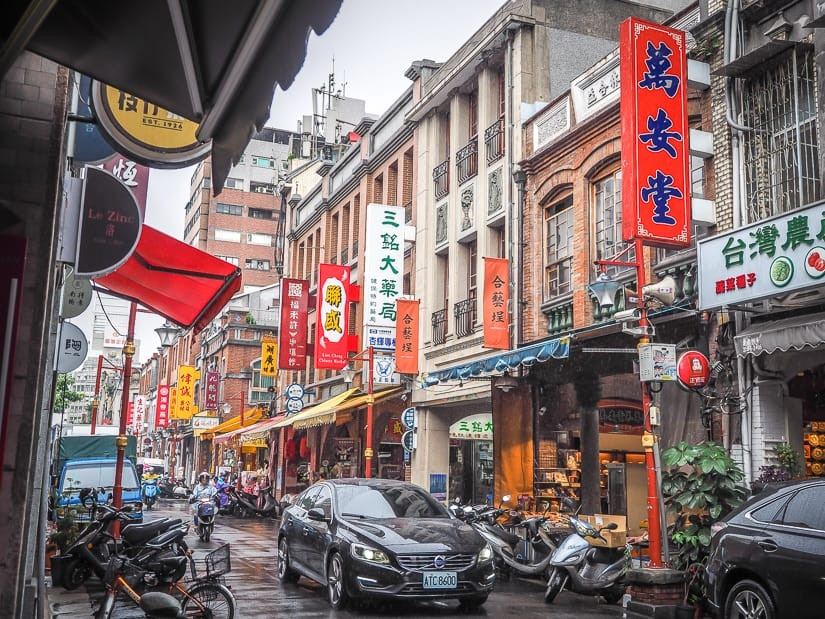 A rainy day scene on Dihua Street, Taipei, capturing the historic streetscape and atmosphere.
A rainy day scene on Dihua Street, Taipei, capturing the historic streetscape and atmosphere.
Venture off Dihua Street down Lane 72, opposite Xiahai City God Temple, to discover Nadou Theater, which presents traditional Taiwanese puppet theater. Next door, the Taiyuan Asian Puppet Theater Museum showcases Asian puppet traditions. Note: museum status should be checked for reopening.
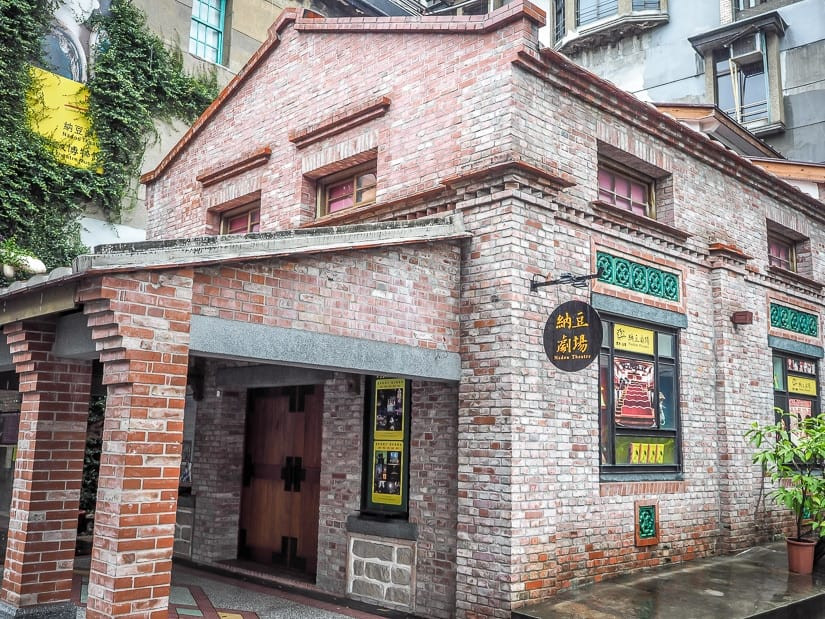 Nadao Theater, Dadaocheng, a venue for traditional Taiwanese puppet shows, preserving cultural arts.
Nadao Theater, Dadaocheng, a venue for traditional Taiwanese puppet shows, preserving cultural arts.
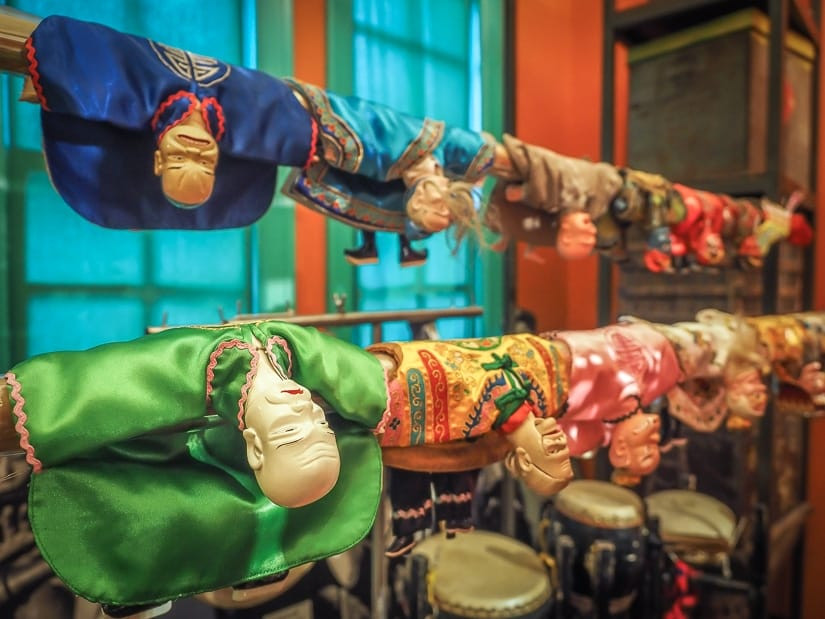 Taiyuan Asian Puppet Theater Museum in Dadaocheng, Taipei, an institution dedicated to the art of puppetry from across Asia.
Taiyuan Asian Puppet Theater Museum in Dadaocheng, Taipei, an institution dedicated to the art of puppetry from across Asia.
Chen Tian-lai Residence, a short walk away, is a baroque-style former home of a tea tycoon. Dadaocheng Pier Plaza, accessible via Evacuation Gate #5, offers riverside access, ferries to Tamsui, and the Dadaocheng Wharf Container Market (Pier 5), a popular evening hangout spot and location for the Dadaocheng Fireworks Festival in August.
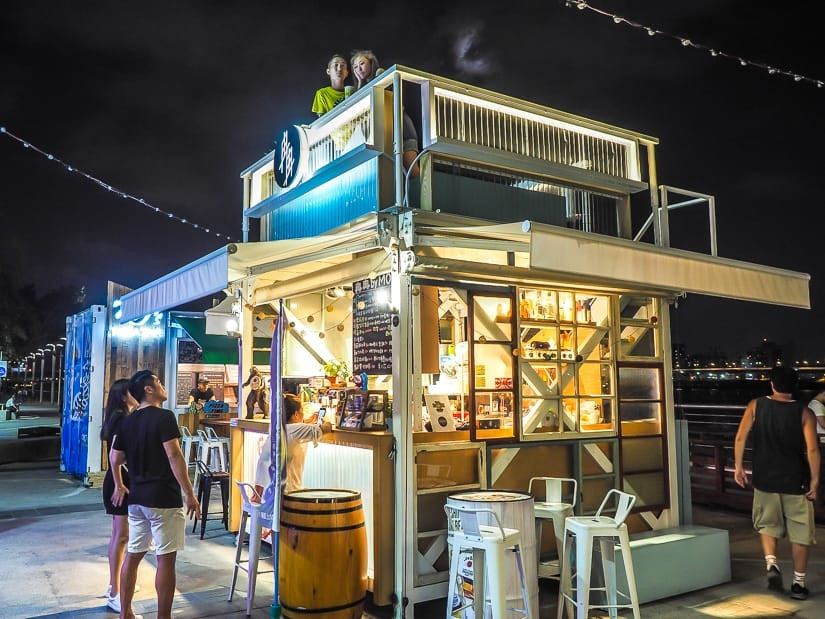 Dadaocheng Pier 5, featuring food and drink stalls, a modern waterfront gathering spot.
Dadaocheng Pier 5, featuring food and drink stalls, a modern waterfront gathering spot.
Further east on Minsheng W. Rd., Xing Hua Ge Alcohol House is a historic banquet hall. Across the street, Bolero restaurants, claiming to be Taipei’s oldest Western restaurants, offer a retro dining experience. Sin Hong Choon, a former tea factory from 1934, is also nearby.
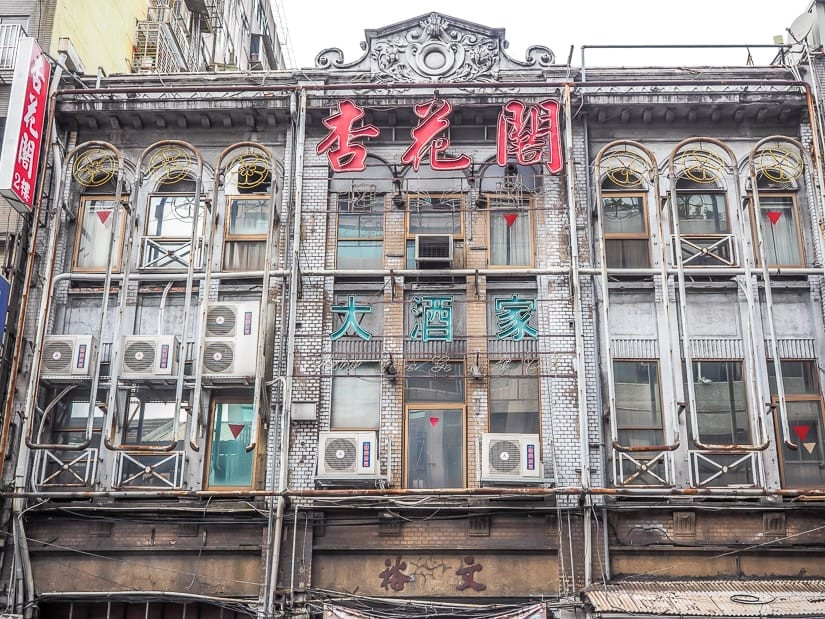 Xinghuage Alcohol House, an aging Dadaocheng institution, reflecting historical entertainment venues.
Xinghuage Alcohol House, an aging Dadaocheng institution, reflecting historical entertainment venues.
Back on Dihua Street, between Minsheng W. Rd. and Guisui St., explore herb shops, Dixie Lane jazz cafe, and Chen Wey Tea House for premium teas. Incense shops are also prevalent near Guisui Rd intersection.
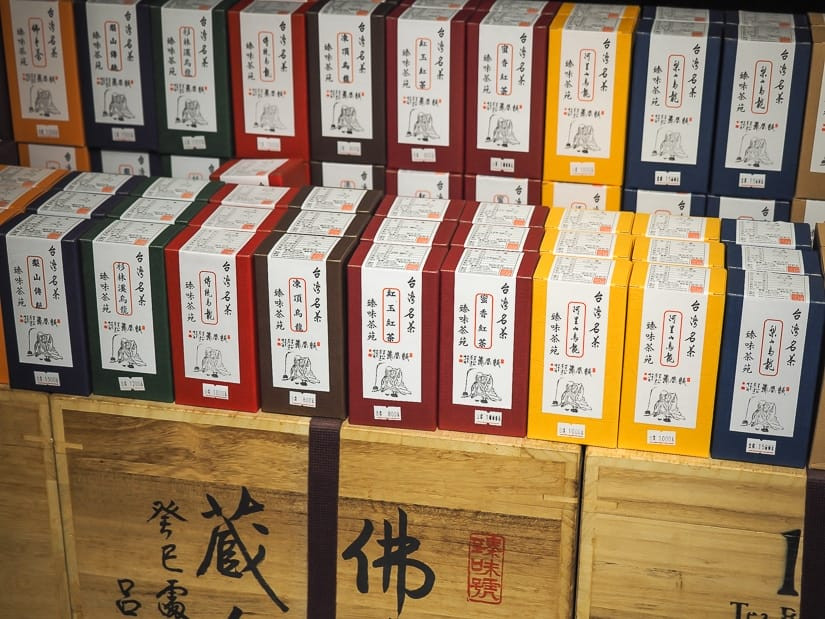 Tea boxes at Chen Wey Tea House, Dihua Street, presenting a selection of high-quality teas in a traditional setting.
Tea boxes at Chen Wey Tea House, Dihua Street, presenting a selection of high-quality teas in a traditional setting.
8. Northern Dihua Street Exploration
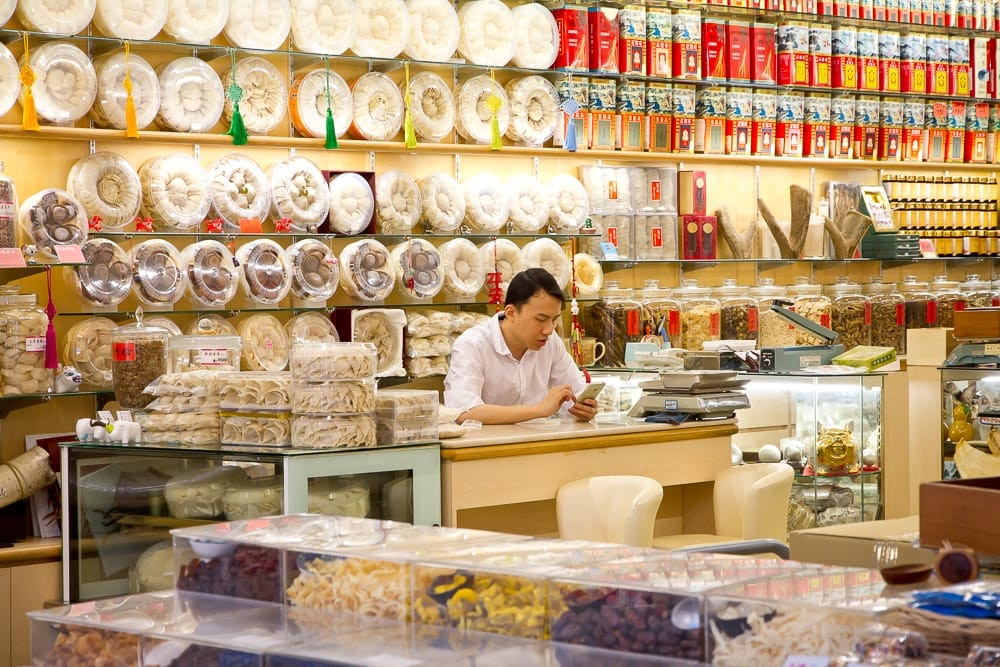 A Chinese medicine shop on Dihua Street, showcasing the traditional businesses that line Taipei's oldest street.
A Chinese medicine shop on Dihua Street, showcasing the traditional businesses that line Taipei's oldest street.
North of Guisui Street, Dihua Street becomes quieter, revealing leafy courtyards within its buildings. Ho Hsing 1947 is a renowned pastry shop, and inBloom Together offers woven and canvas products.
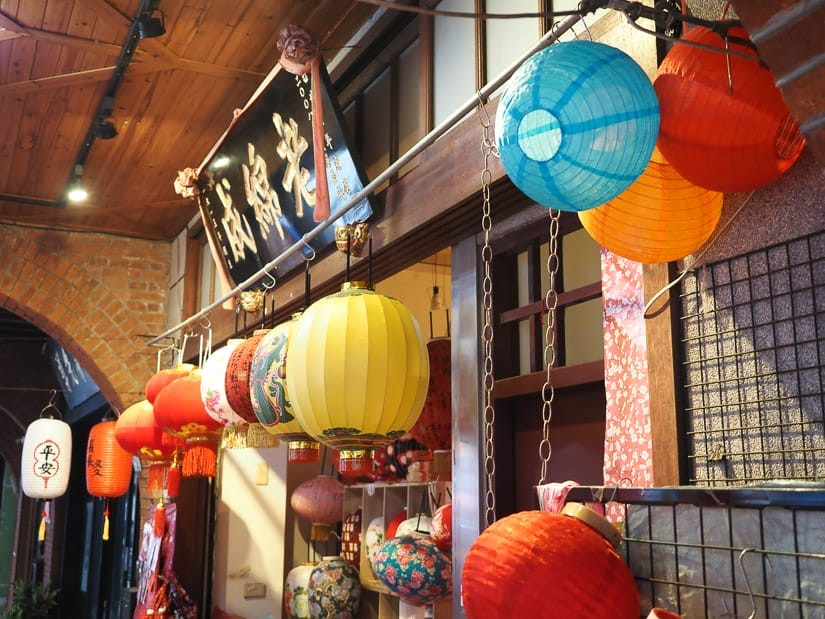 A traditional Chinese storefront with various paper lanterns hanging, showcasing a lantern shop on Dihua Street.
A traditional Chinese storefront with various paper lanterns hanging, showcasing a lantern shop on Dihua Street.
Lao Mian Cheng Lantern Shop, at the northern end, is the best place for traditional lanterns in Taipei. Yehjinfa Rice Story Museum and Lee Cake, a historic pastry shop, are also nearby. Mukuchi Kitchen offers vegan ramen, and Rice & Shine serves traditional meals in a historic setting. Oriental Cuisine Guizhou provides spicy-sour Guizhou dishes, completing the culinary offerings of Dihua Street.
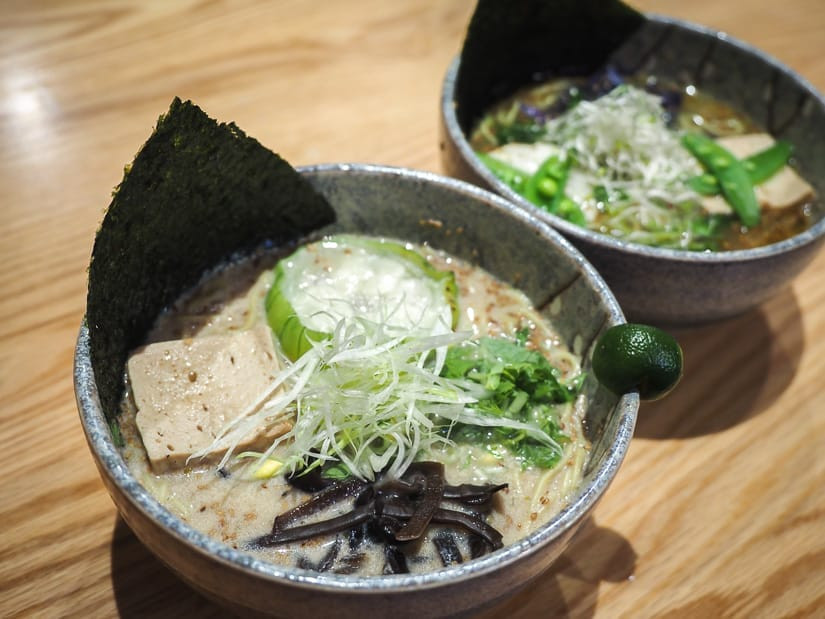 Two bowls of vegan ramen with colorful vegetable toppings, served at Mukuchi Kitchen on Dihua Street.
Two bowls of vegan ramen with colorful vegetable toppings, served at Mukuchi Kitchen on Dihua Street.
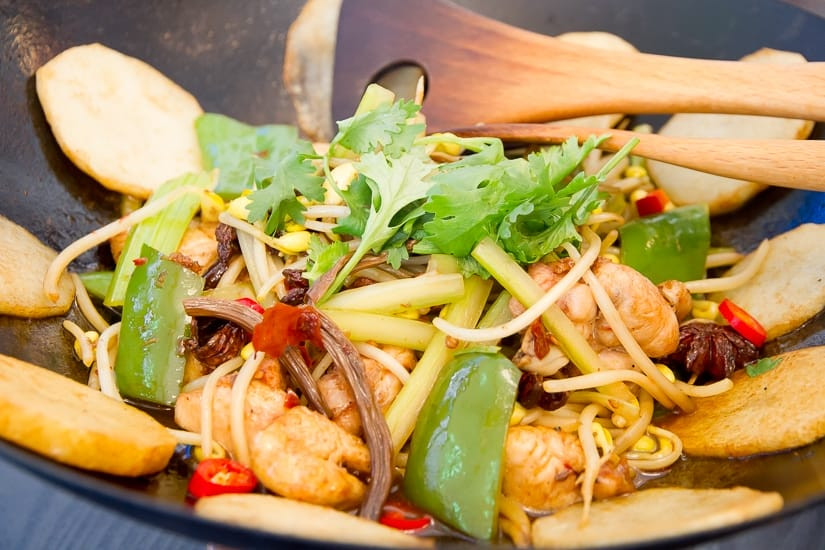 Oriental Cuisine Guizhou (Qing Xai Lai restaurant), Dihua Street, Taipei, featuring a flavorful stir-fry with potatoes, a signature Guizhou dish.
Oriental Cuisine Guizhou (Qing Xai Lai restaurant), Dihua Street, Taipei, featuring a flavorful stir-fry with potatoes, a signature Guizhou dish.
9. Starbucks Bao An Datong
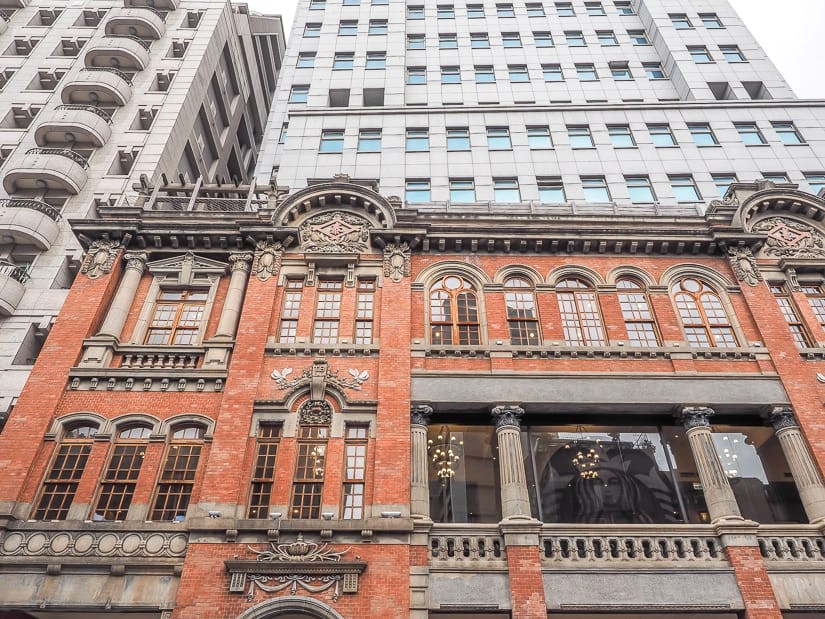 Starbucks Bao An Datong, a modern cafe integrated into a historic red brick building, considered Taipei's most beautiful Starbucks.
Starbucks Bao An Datong, a modern cafe integrated into a historic red brick building, considered Taipei's most beautiful Starbucks.
Starbucks Bao An Datong, a Starbucks Reserve location, stands out as possibly Taipei’s most beautiful Starbucks. It uniquely blends a modern structure with a preserved 1929 red brick building, originally owned by the “Pineapple King” of Taiwan. The interior is as impressive as the exterior.
10. Dadaocheng Presbyterian Church
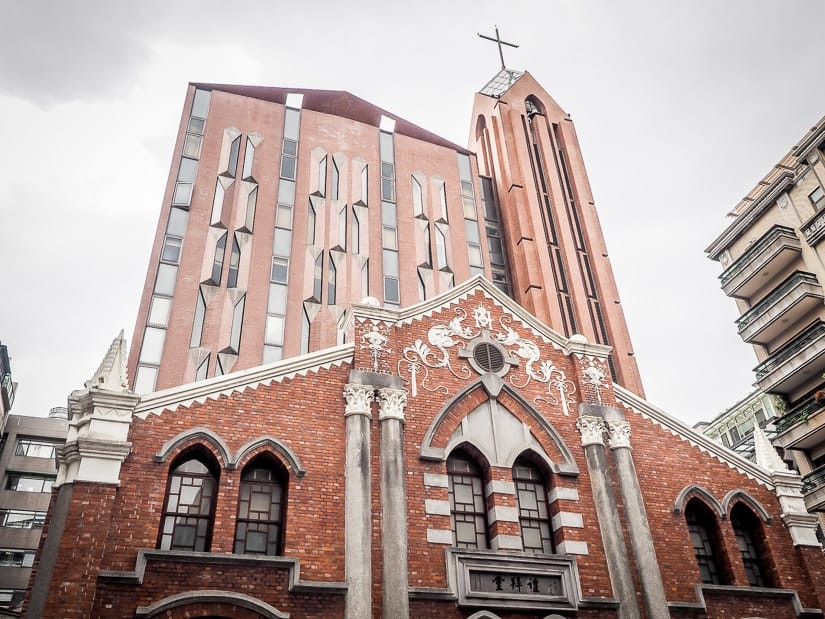 Dadaocheng Presbyterian Church (Ta Tao Cheng Presbyterian Church), rebuilt to resemble the historic church after its demolition.
Dadaocheng Presbyterian Church (Ta Tao Cheng Presbyterian Church), rebuilt to resemble the historic church after its demolition.
Dadaocheng Presbyterian Church, rebuilt after a controversial demolition, maintains a similar facade to the original historic church, with a modern extension behind it.
11. Dadaocheng Cisheng Temple
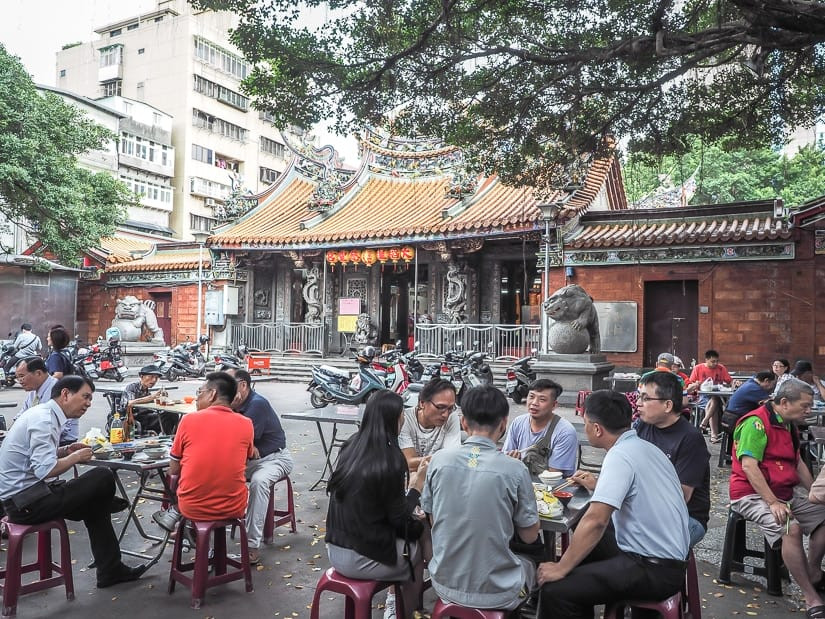 Dadaocheng Cisheng Temple, Taipei, a significant local temple with a unique forecourt food stall area.
Dadaocheng Cisheng Temple, Taipei, a significant local temple with a unique forecourt food stall area.
Dadaocheng Cisheng Temple, or Dadaocheng Matsu Temple, is notable for its forecourt filled with over 40 food stalls. This area is a popular spot for locals to enjoy breakfast or lunch under large banyan trees, offering a taste of traditional Taipei dining culture.
12. Lin Mao Sen and Lin Huai Tai Tea Shops
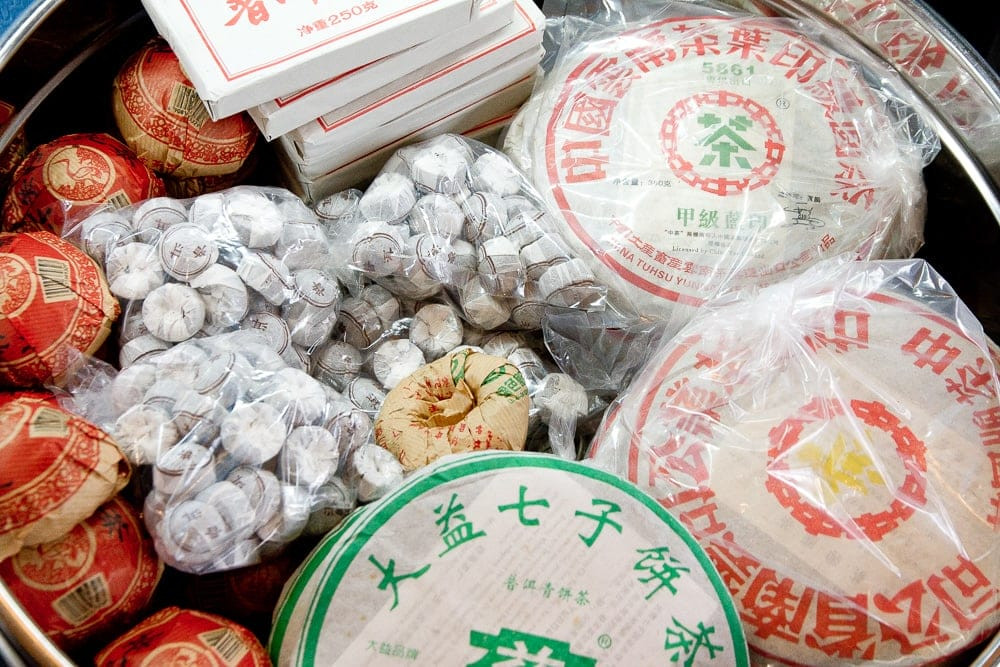 Various teas displayed at Lin Mao Sen Tea Shop in Taipei, showcasing the range of Taiwanese teas available.
Various teas displayed at Lin Mao Sen Tea Shop in Taipei, showcasing the range of Taiwanese teas available.
Lin Mao Sen Tea Co. and Lin Huai Tea, owned by brothers, are top recommendations for tea purchases in Taipei. Located side-by-side, they offer a wide range of Taiwanese teas at competitive prices, with knowledgeable staff who can assist English-speaking customers.
This concludes a comprehensive walking tour of Dihua Street, aiming to provide insightful information for an enriching visit. Should any details have changed, or if there are notable omissions, feedback is welcome to keep this guide updated and valuable.
